Microsoft Surface Phone Rumors: What You Can Expect
Microsoft hasn't announced any plans for a Surface Phone but that hasn't stopped the rumor mill. Here's the latest chatter about Microsoft's anticipated mobile device.
Windows 10 Mobile, formerly known as Windows Phone, is a platform without a true hero device. Sure, there are handsets out there from Acer, HP and Alcatel, but they just seem to be keeping a seat warm until Microsoft releases its own phone.
Microsoft has been signaling since 2015 that it is at work on what the company deems to be a revolutionary smartphone. Microsoft executives up to CEO Satya Nadella have been hinting at something that represents a real paradigm shift, with Nadella even referring to the “ultimate mobile device.”
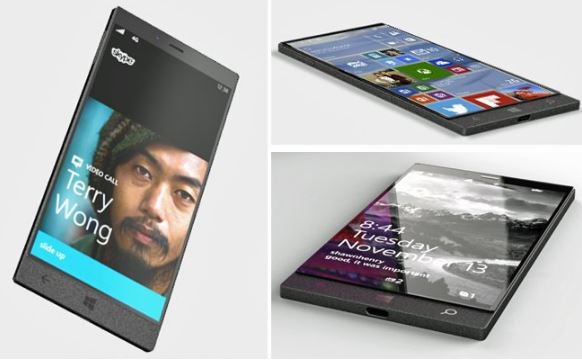
Update May 8: More recently, Nadella spoke with Molly Wood about its strategy, saying “I’m sure we’ll make more phones, but they will not look like phones that are there today.”
While that might be a bit hyperbolic, it is not as far fetched as it would have once seemed. Microsoft has established itself as a legitimate hardware player with the entirety of the Surface line, including some innovative ideas with the new Surface Studio, and it has made impressive strides with its apps on Android and iOS in recent years, with some of the most popular productivity apps in both stores.
Let’s take a look at everything you need to know about the Surface Phone and what you can expect once the phone makes its long-awaited debut.
Surface Phone Highlights: What to Expect
- Microsoft executives have hinted at a “breakthrough” smartphone.
- Microsoft may be working on a radical design for the Surface Phone where the device could fold out from a phone into a tablet or even a laptop.
- The Surface Phone could include a pen similar to Samsung’s Galaxy Note 7.
- A partnership between Qualcomm and Microsoft to have Windows 10 devices powered by ARM processors paves the way to a Surface Phone.
- The Surface Phone seems likely to target business users, drawing on Microsoft’s Continuum feature.
- Microsoft has announced an event for May 23rd in Shanghai, which corporate VP of devices Panos Panay tagged with #Surface on Twitter. This could be for the rumored Surface Pro 5, but it's also possible a handset could debut.
Release Date: When will the Surface Phone arrive?
Microsoft has never confirmed the existence of a Surface Phone, so naturally there’s no official information on when to expect a device. Back in December 2015, Microsoft’s executive vice President and chief marketing officer, Chris Capossela, appeared on This Week in Tech’s Windows Weekly podcast and mentioned a “breakthrough” smartphone in development, but gave no indication of when it might be coming.
MORE: Windows 10 Mobile Isn't Dead Until a Surface Phone Flops
Sign up to get the BEST of Tom's Guide direct to your inbox.
Get instant access to breaking news, the hottest reviews, great deals and helpful tips.
Reports have suggested that a phone would be more likely to come out next fall with the “Redstone 3” update to Windows 10 that carries with it a new design language codenamed “Project NEON.” One goal of this new design language is a more fluid UI experience across multiple device sizes, making it a logical moment to unveil new mobile hardware.
Could It Fold?
A patent filing by Microsoft could mean a fairly innovative design for the Surface Phone — or at least for some mobile device that Microsoft develops. Microsoft filed a patent for a device with multiple flexible hinges that would let it double as both a smartphone and tablet.
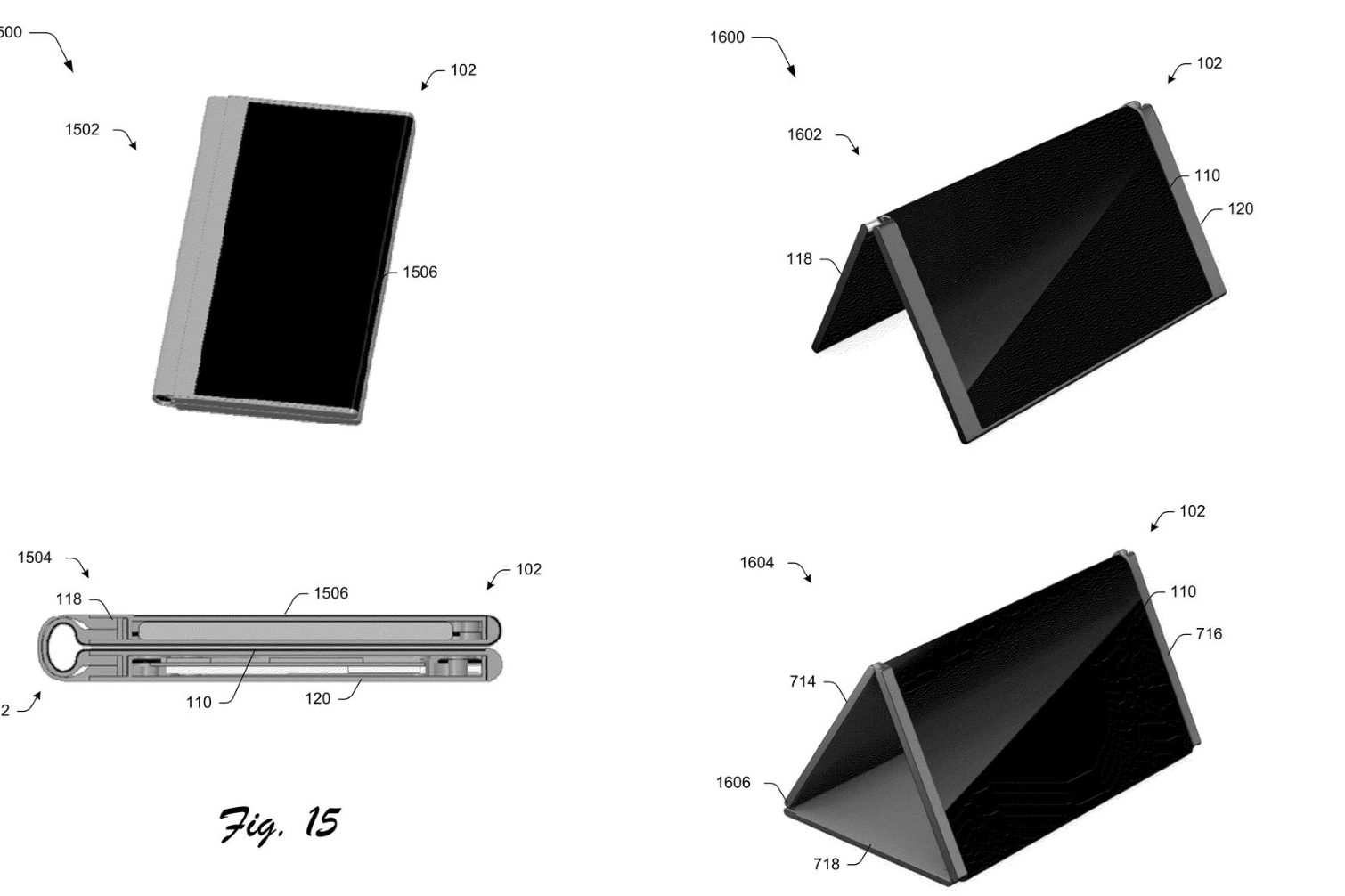
The device would work as a traditional phone when folded up. When you need more screen space, you would unfold it into a tablet, with the device also capable of working in a tent mode as well for those time when you want to watch content.
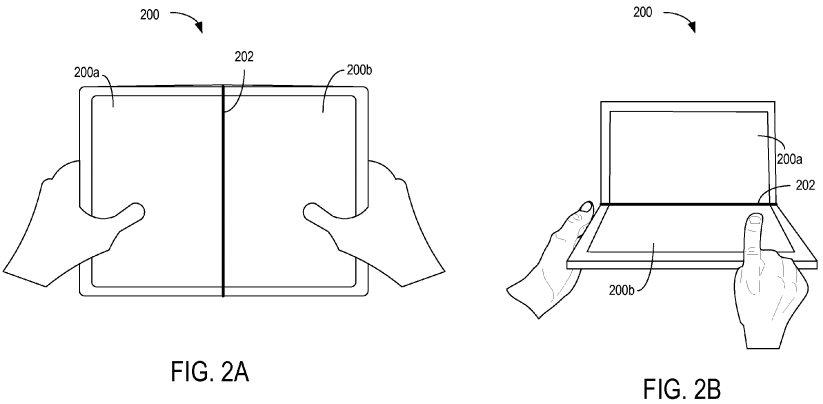
A second patent filed by Microsoft shows other angles the device could take, such as a book or a laptop. If folded flat, you could also get an essentially dual-sided display.
A patent filing does not necessarily ensure that a company will ever come out with device sporting that technology. But it does suggest that Microsoft is looking for ways to make future phones stand out from the crowd. Of course, Microsoft isn't the only company with foldable phones in mind: Samsung is rumored to be working on a folding phone of its own for release in the third quarter of 2017.
Taking a Note from Samsung?
Microsoft has been pushing pen-based computing for over a decade, and while Windows 10 Mobile has notably steered clear of stylus support to date, it wouldn’t be a surprise see Microsoft reverse course for a Surface Phone considering the strong pen focus across the rest of the Surface line.
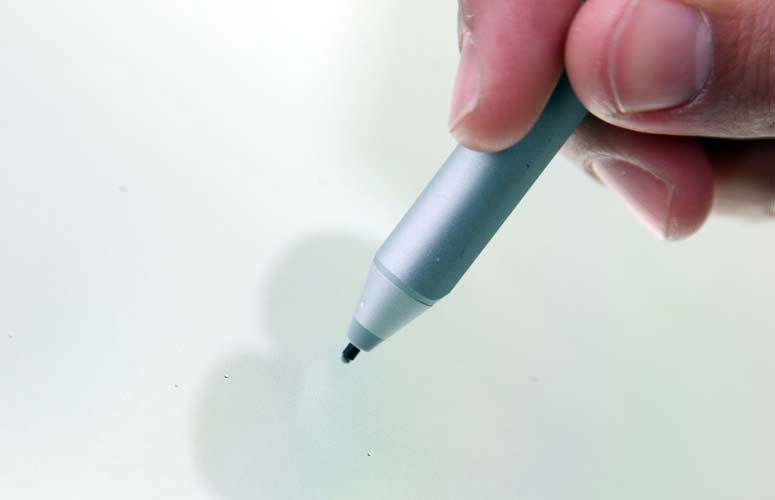
A recent patent filing reported on by Patently Apple was originally thought to illustrate just such a device, but further review found it to be an older Lumia design. Regardless, the move to include a pen with a high-end Surface Phone seems in line with Microsoft’s goal to differentiate with a new mobile offering, Microsoft has the experience to leapfrog Samsung’s efforts in this area and own this high-end niche.
What’s Inside: ARMed for the Future
The news that ARM support will be coming to Windows 10 in 2017 via a partnership with Qualcomm may point to the eventual future for Surface Phone. While Snapdragon-powered machines running Windows 10 are most likely to be tablets and perhaps thin-and-light laptops initially, the Microsoft-Qualcomm partnerships opens up the possibility of Microsoft bringing a Surface Phone completely into the “one Windows” fold. This seems like precisely the kind of paradigm shift that Microsoft is looking for in the next iteration of its smartphone hardware and a logical evolution of the Continuum efforts that allow current Windows Phone devices to act as a full PC when plugged into a dock.
In an interview with The Australian Financial Times, Microsoft CEO Satya Nadella said, "We will continue to be in the phone market not as defined by today's market leaders, but by what it is that we can uniquely do in what is the most ultimate mobile device." A device in your pocket that can actually take the place of your full PC with support for the same software that you use on a laptop or desktop would seem to fit the bill. And while this may not be the dream for all smartphone users, it is a dream for a certain audience and one that Microsoft is perhaps better positioned than any other company to execute on.
Lineup: A Trio of Surface Phones?
Back in April 2016, Windows Central cited sources familiar with early plans for the Surface Phone claiming that there would potentially be three separate devices geared at distinct audiences — consumer, business, and prosumer. What differences these three devices would feature to better appeal to each segment is unknown, but upgraded camera modules, the presence of a built-in Surface Pen and larger batteries seem like potential areas to differentiate each phone.
It is worth noting that there has been little additional reporting on this rumor, so it’s entirely possible that Microsoft could ultimately launch a single model. But one thing the Windows Central report id make clear is that lower-end hardware like the Lumia 650 is likely not in the cards for the Surface Phone line.
Price: Keep it Competitive
As there is very little to go on for the actual Surface Phone hardware it’s difficult to say what price such a phone would command. If the Surface Phone avoids the low cost market as expected, then look for something in the range of the iPhone (the iPhone 7 starts at $649) and higher-end Android offers.
There is the possibility that Microsoft will look to just go after business user and enthusiasts with a Surface Phone, making a device along the lines of the Note 7. The Note cost $850 — you know, when you could still buy one.
What We Want
Solid information on the Surface Phone is scanty at the moment, but the few details that have dripped suggest that Microsoft’s on the right track with its concept for the Surface Phone. We would love to see a device that truly differentiates itself from the rest of the market rather than simply trying to be a better version of the current smartphone design and putting this job in the hands of the Surface team certainly seems like Microsoft’s best bet.
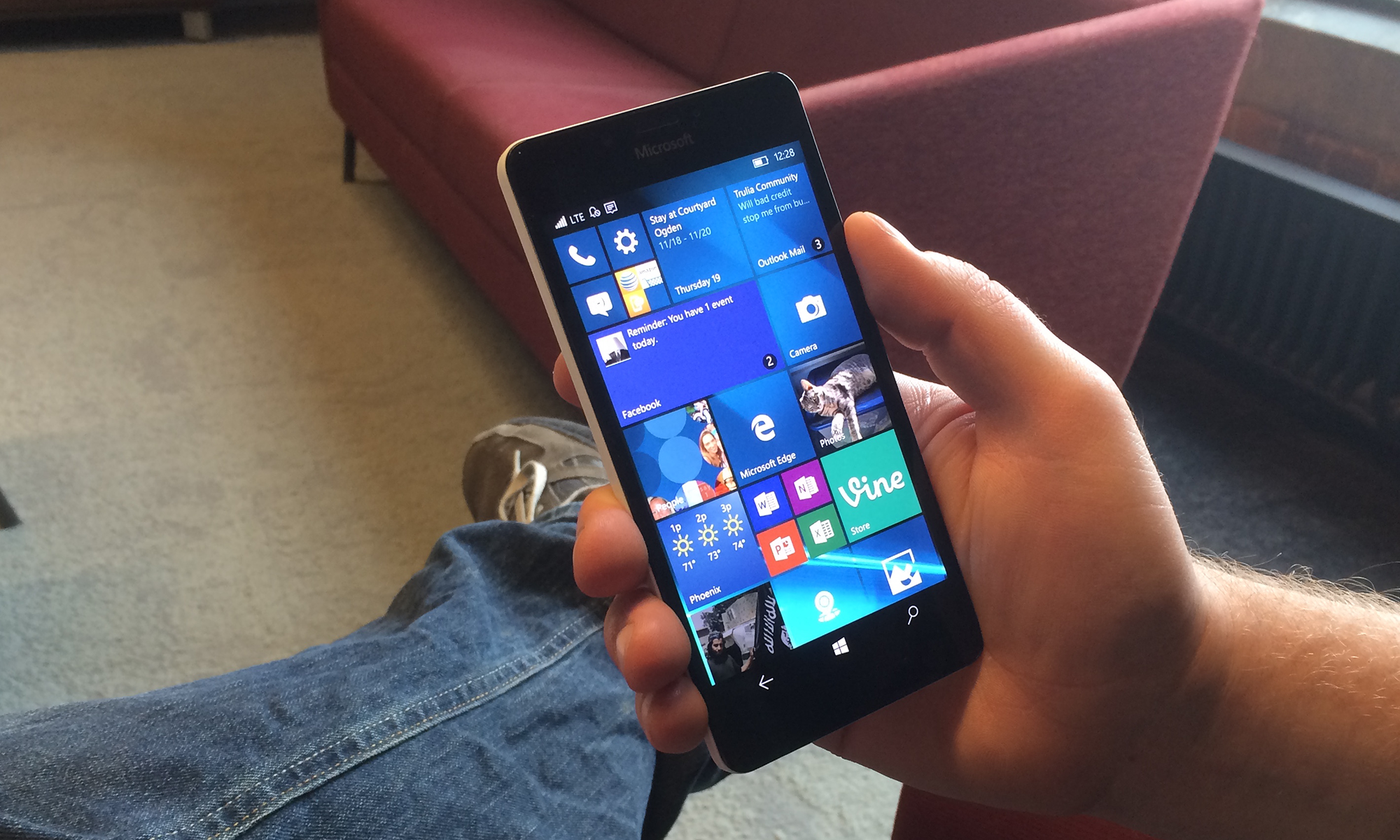
It seems clear that at least part of that pitch is likely going to be that you can make this the one computing device that you own. That won’t resonate with everyone, but it’s potentially a huge selling point for business users that are already accustomed to docking a laptop when they arrive at work. Continuum sparked interest when Microsoft announced that feature, but the experience ultimately fell short. Surface Phone has the potential to make good on Continuum’s promise.
A pen is the other area where we would really like to see Microsoft put its experience to good use. Given Microsoft’s experience with the rest of the Surface line and particularly in light of some of the new ideas shown off with the Surface Studio, we would love to see what the company would bring to the table with a pen-based smartphone.
A self-professed "wearer of wearables," Sean Riley is a Senior Writer for Laptop Mag who has been covering tech for more than a decade. He specializes in covering phones and, of course, wearable tech, but has also written about tablets, VR, laptops, and smart home devices, to name but a few. His articles have also appeared in Tom's Guide, TechTarget, Phandroid, and more.
-
somethingbrite After the dreadful user experience I have lived through this past year with the Lumia 950 I'll give it a miss.Reply
The Lumia 950 looked good on paper, but they must have swapped out for cheaper hardware between R&D and manufacture. It's a dreadful phone, both in terms of hardware and software. Microsoft couldn't be bothered to even write an application to backup contacts and sms' ffs! (and the app ecosystem is far from vibrant)
Microsoft tech support is non existent and their customer service abysmal.
Lumia 950 was so unstable it was unusable and I ended up taking the sim out and putting it back in my old phone.
Don't waste your money on this. -
HXC There's a lot of fancy hype and marketing talk here. Well, perhaps the product might possess some bells and whistles, however we must all be aware that the smartphone space is extremely competitive. The manufacturers of fancy technologies that smartphone makers include in their 'flagship' phones are not stupid to just exclusively make it for a single player or brand - when there's so much money to make. What may sound groundbreaking now will no longer be groundbreaking when it launches.Reply -
That_Last_Windows_Fool 2 things the Surface Phone needs CDMA support for Verizon and Sprint networks. The Second thing is APPS... However it is a catch 22 with apps, as no developer wants to build for the OS because of the lack of consumers. Where the consumers don't want to go into a OS without their favorite apps. Not even Microsoft wants to build apps for the OS anymore.Reply -
Daekar3 This is just the press trying to generate clicks. Microsoft won't release another phone for at least a few years. The market isn't any different, the competition is better than ever, and nothing has changed materially about the device they could bring to market, in particular the app side of the equation. They have work to do on Windows 10, ARM, Cortana, and the Windows Store, before they would even consider starting in on handsets again.Reply -
pampierce 1. What was really missing, the last time I used a Windows phone, is the zillions of apps that are available for android and apple phones. Now that we have .NET Core, maybe we can overcome this handicap. Until then, I'm really not interested in a Microsoft phone. The last one I had was awesome, but it was just too frustrating not having the apps that I wanted....Reply
2. Also, Microsoft doesn't treat their phone well. They do better Office365 integration on the apple and android than on their own device. I was really upset about that, since that was what I bought it for - the complete Windows integration....
3. And I'm still upset with Microsoft in general for REQUIRING the Office365 administrator to have the right to kill everything on my phone. This is a disaster waiting to happen if you have anything stored on your phone and not everything in the cloud. I still think it is easier to hack an administrator's account than to lose the phone and need it to be erased. Since I am in a small company, the Office365 administrator should determine if they want this right to kill a person's phone, not make it mandatory. And if this option is changed, it should be delayed implementation in case the admin account is hacked. If the Admin wants the right to erase the phone, fine. But if they don't want it, and have the ability to turn it off, then erasing the phone should not be as easy as turning the option on - in case the admin account is hacked.

